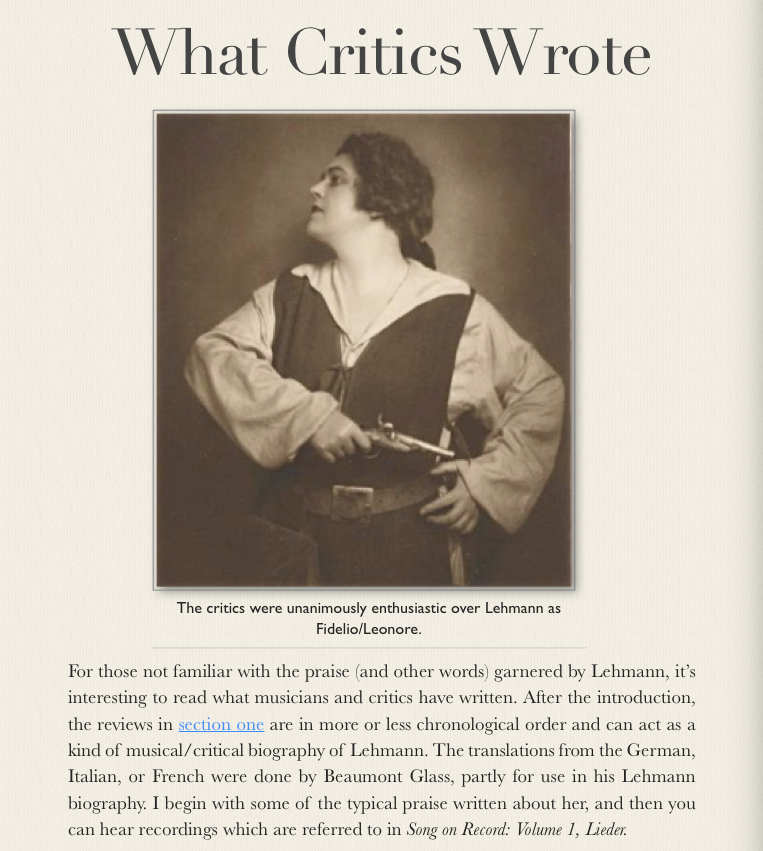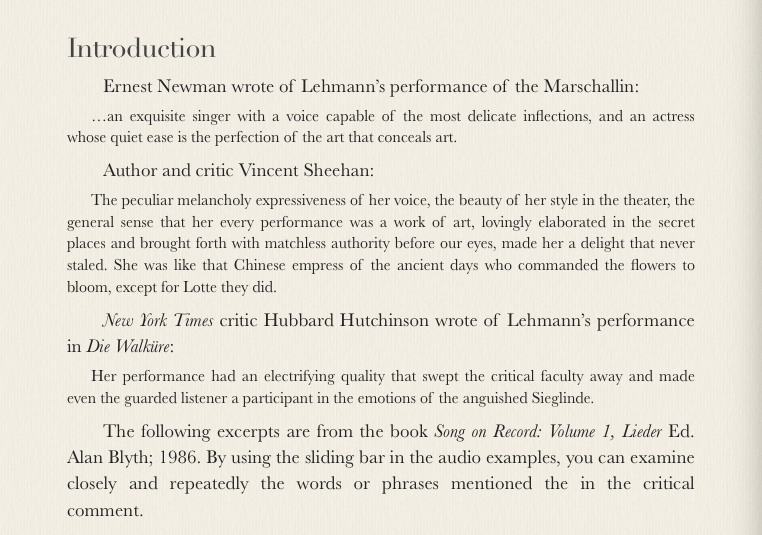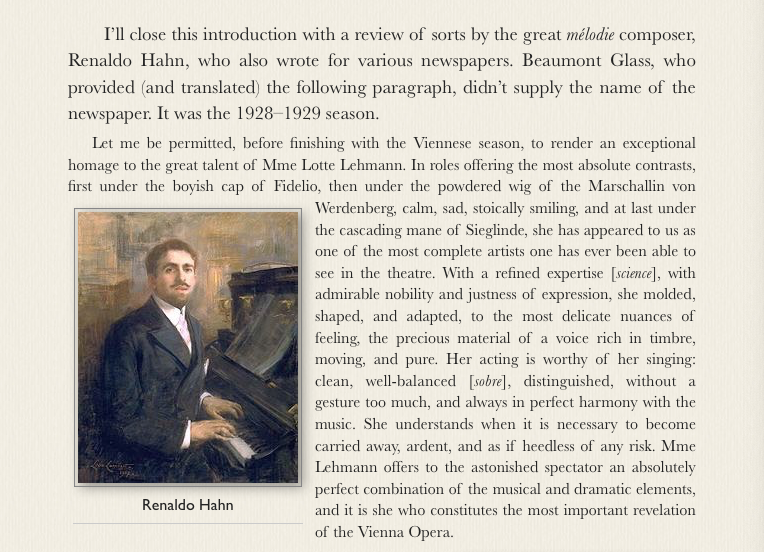Lotte Lehmann & Her Legacy: Volume 2


Of the recording Lehmann made of “Liebestod” from Wagner’s Tristan und Isolde, J. B. Steane rhetorically questions:
“Has one ever heard an Isolde who so tenderly mirrors the smile she sees in the dead face, or who rises quite so humanly to the great climaxes?”
When reviewing her 1941 recording of Wagner’s “Träume,” with Ulanowsky, Steane writes:
…of course…Lehmann communicates an intense affection, perhaps more warmly than any other singer. Beginning with the utmost tenderness, she catches the yearning feeling in the dotted-note phrases, and then breathes a glowing warmth of spirit into the exclamations, ‘Allvergessen, Eingedenken!’
Of Lotte Lehmann’s “Die junge Nonne” by Schubert, J. B. Steane writes: The singer…who brings to the song the full resources of voice and imaginative warmth to give it one of the finest performances on record is Lotte Lehmann. This was made late in her career [1941] but the voice is still firm and beautiful, and right from the start (with the recognition that those opening phrases are exclamations) there is a sense of involvement by far the most intense among these singers [already mentioned]. The urgency of the first verse (almost like the Act II Sieglinde), the shining face of trust in ‘Ich hare, mein Heiland,’ the beautiful pianissimo of ‘erlöse die Seele,’ the rapt exaltation and the serene ‘Alleluja’—it is all so complete an experience that the song lives, it seems, twice as long.”
Comparing Lehmann’s recording of “Zärtliche Liebe” to others, David Hamilton writes:
“Even more convincing is Lotte Lehmann, who stresses the subsequent turn to the submediant (und erhalt’ uns beide) as well as the dominant, and projects warmth together with vulnerability. ”
Alan Blyth writes about Lehmann’s recording of Dichterliebe:
“At once, in the opening song, Lehmann’s immensely personal way with the cycle—impassioned delivery, free declamation, utter conviction—is evident.”
“Any soul that is left untouched by her tremendous “Ich grolle nicht” must be damned. With what meaning she invests every word throughout: “Nur eine kennt meinen Schmerz” in “Und wüsstens die Blumen,” for instance, rends the heart…”
“Any male heart that doesn’t capitulate to the eroticism of “Ich will meine Seele tauchen” or the eager appeal of “Allnächtlich im Traume” must be hard indeed.”
The pianist for the Dichterliebe was Bruno Walter. You may hear his and Lehmann’s complete cycle in the Dichterliebe chapter.

